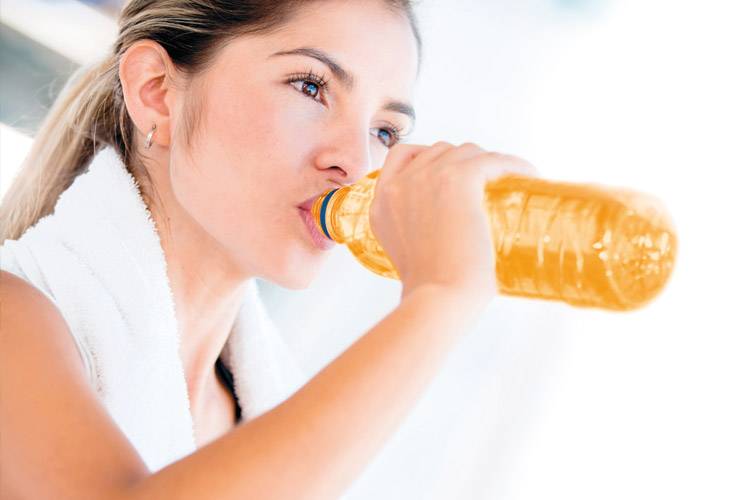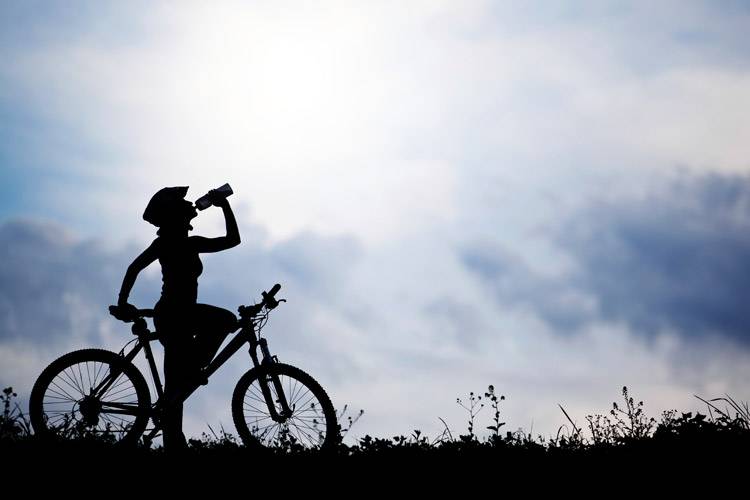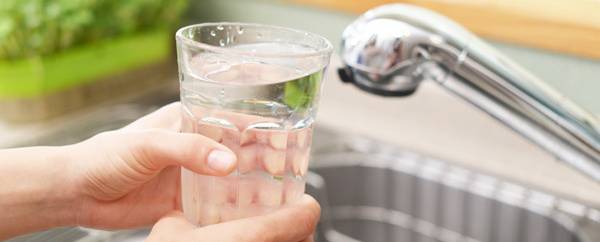Stay hydrated, and feel better
Liquids and food provide us with the hydration that our body needs, although not in equal amounts. According to experts, we should drink without waiting to get thirsty first. The amount of fluids we should take depends on our age, gender and the physical activity we do.
health and beauty
Share

Although still considered as food’s little sister, drinking enough water has become a fundamental factor in nutrition and general health. In addition, it becomes key when the weather is at its hottest.
Therefore, just as it is necessary to follow a healthy diet, an adequate intake of fluids, consistently and regularly throughout the day, is key to the proper functioning of the body. It is essential and contributes to greater physical performance and to the ideal maintenance of our cognitive functions.
KEEP HYDRATED AT EVERY AGE
The recommended daily intake of fluids is 2 litres for adult women and 2.5 litres for men, according to the European Food Safety Authority (EFSA). For children, the recommendations vary according to their age: whereas between 4 and the 8 years of age, the ideal consumption of liquids is 1.6 litres a day, between 9 and 13, boys should drink 1.9 litres every day and girls 2.1 litres per day, according to the EFSA.
But... why is it so important to drink liquids continuously? Water is an essential nutrient that we get through the food and drink we consume throughout the day, but unlike other nutrients, this liquid cannot be stored in the body. In fact, every day we lose between 2 and 2.5 litres of water, a figure that increases if, in addition, we perform some type of physical activity.
According to the director of the VALORNUT Research Group and Professor of Nutrition at the Complutense University of Madrid, Professor Dr. Rosa María Ortega, "it is recommended that 75-80% of the liquid we ingest each day comes from drinks and the remaining 20-25% from food ".
The recommended daily intake of fluids is 2 litres foradult women and 2.5 litres for men, according to the EFSA. In younger children,recommendations vary depending on their age.
DRINKING WITHOUT WAITING TO GET THIRSTY FIRST
To avoid becoming dehydrated, experts recommend drinking water or other fluids without waiting to feel thirsty first. Although this is a simple premise, the fact is that many Spaniards drink only when thirsty, which could mean that there is already a certain level of dehydration.
Even so, people’s awareness of the importance of keeping adequately hydrated, especially in certain environmental conditions, is increasing. "With a mild dehydration of only 2%, cognitive abilities such as short-term memory, attention and vision-motor coordination are already affected. At higher levels, there is a decrease in alertness and concentration, as well as increased tiredness, fatigue and drowsiness,” according to the president of the Foundation for Nutrition Research (FIN), president of the Spanish Academy of Nutrition (AEN) and professor of Preventive Medicine and Public Health of the University of Las Palmas de Gran Canaria, Professor Dr. Lluìs Serra-Majem.
PARTICULAR CARE IS NEEDED FOR PREGNANT WOMEN AND THE ELDERLY
Keeping ourselves sufficiently hydrated is important in our daily lives, but it takes on a special role if we are talking about pregnant or lactating women and the elderly.
According to the EFSA, it is advisable for pregnant women to increase the amount of fluid they ingest, taking into account how much energy they expend. In addition, it is important to increase the intake of beverages during the lactation period by 700 ml/day compared to non-lactating women, which means drinking 2.7 litres of fluid each day.
As for the elderly, you have to keep in mind that the feeling of thirst decreases with age, so they usually consume less fluid, which can lead to dehydration. In this sense, it is recommended that this group drink more often and in smaller quantities to achieve adequate hydration.

MORE PHYSICAL ACTIVITY, MEANS MORE FLUID
Nowadays, with running becoming one of the healthiest trends, we also need to stress that people who engage in intense, prolonged physical activity should keep hydrated. And not only while doing exercise, but also before and after. In addition, if you participate in competitions or long-distance races, you should drink specific beverages that contain a suitable composition of carbohydrates and electrolytes to compensate for loss of fluids.







